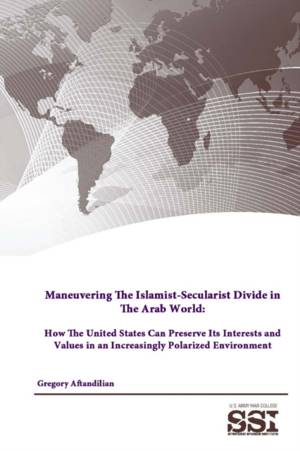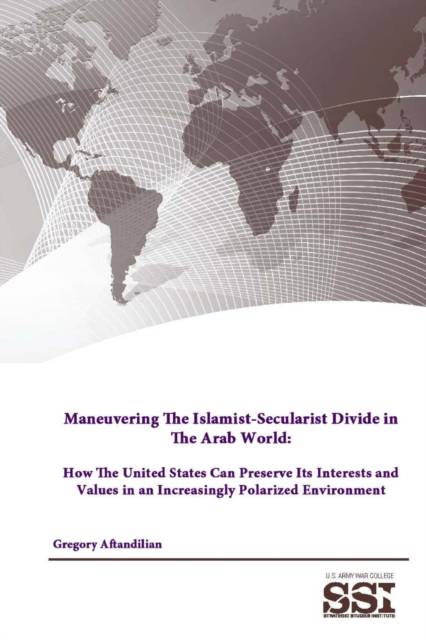
- Afhalen na 1 uur in een winkel met voorraad
- Gratis thuislevering in België vanaf € 30
- Ruim aanbod met 7 miljoen producten
- Afhalen na 1 uur in een winkel met voorraad
- Gratis thuislevering in België vanaf € 30
- Ruim aanbod met 7 miljoen producten
Zoeken
Maneuvering The Islamist-Secularist Divide in The Arab World
How The United States Can Preserve Its Interests and Values in an Increasingly Polarized Environment
Gregory Aftandilian, Strategic Studies Institute, U S Army War College
Paperback | Engels
€ 21,95
+ 43 punten
Omschrijving
The Middle East is again in the midst of turmoil. While much of the focus is on the sectarian divide and conflict between Sunni and Shia being played out in several countries and among different groups, an equally important division is occurring between secularists and Islamists in a number of Arab countries. This conflict is particularly acute in the countries of the so-called Arab Spring. The removal of the authoritarian leaders in these countries has led to intense competition between Islamists parties and their secular detractors, and the two sides of this divide have very different visions of where they want their societies to be headed. Islamists initially have an advantage politically because of their history of being a repressed opposition movement, their charitable work among the poor, and their appeal to religion, but secularists, while weak in terms of grass-roots organization, often have powerful institutional allies in these societies, such as the military, judiciary, and trade unions.
Specificaties
Betrokkenen
- Auteur(s):
- Uitgeverij:
Inhoud
- Aantal bladzijden:
- 64
- Taal:
- Engels
Eigenschappen
- Productcode (EAN):
- 9781312844537
- Verschijningsdatum:
- 17/01/2015
- Uitvoering:
- Paperback
- Formaat:
- Trade paperback (VS)
- Afmetingen:
- 152 mm x 229 mm
- Gewicht:
- 104 g

Alleen bij Standaard Boekhandel
+ 43 punten op je klantenkaart van Standaard Boekhandel
Beoordelingen
We publiceren alleen reviews die voldoen aan de voorwaarden voor reviews. Bekijk onze voorwaarden voor reviews.











